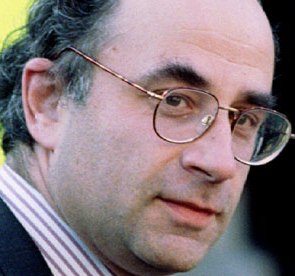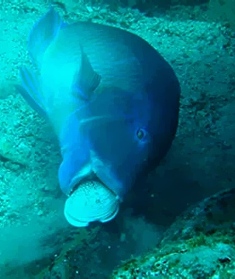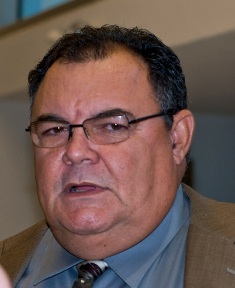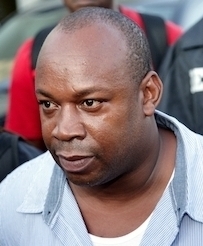Archive for July 13th, 2011

Coca-Cola e-mail a scam too, warn financial cops
 (CNS): Officers from the RCIPS Financial Crimes Unit are issuing another warning just in case there is anyone out there who hasn’t worked out that someone offering free money via e-mail is usually a con artist. DCI Claudia Brady has released a copy of the latest scam e-mail which is circulating in the Cayman Islands, again warning people not to be fooled. An e-mail claiming to be from Coca Cola saying the recipient has won half a million dollars in a recent promotion is a scam, the cop noted as she told people not to respond. “The people who send out these e-mails only need one or two people to fall for their scam to make it all worthwhile," she said.
(CNS): Officers from the RCIPS Financial Crimes Unit are issuing another warning just in case there is anyone out there who hasn’t worked out that someone offering free money via e-mail is usually a con artist. DCI Claudia Brady has released a copy of the latest scam e-mail which is circulating in the Cayman Islands, again warning people not to be fooled. An e-mail claiming to be from Coca Cola saying the recipient has won half a million dollars in a recent promotion is a scam, the cop noted as she told people not to respond. “The people who send out these e-mails only need one or two people to fall for their scam to make it all worthwhile," she said.
"Anyone who looks at the attached letter will see that it is very poor quality, not something that you would expect to be circulated from a company such as Coca Cola. If you receive such a letter please ignore it or you will lose out financially.”
Anyone who requires any advice about how to spot an internet scam should contact the Financial Crime Unit on 949-8797
See copy of ‘scamail’ below.

Man denies trying to kill brother in family fight
(CNS): A George Town man denied shooting at his brother during a family dispute last year when he appeared in Grand Court Wednesday, facing trial for attempted murder and possession of an unlicensed firearm. Julio Simon Newball is accused of shooting at Phil McLaughlin his half brother outside the family’s yard in Leafy Lane, following an altercation with their mother. McLaughlin, the crown’s key witness, told the court that as he walked towardsthe house on the evening in question he saw his brother take out a 38 revolver and load it with two bullets. McLaughlin ran towards the property as Newball raised the weapon and fired in his direction before fleeing towards Walkers Road.
The witness told the court that he was not hit and despite being shot at he ran after his brother who then fired a second shot before disappearing into the bushes. Again unscathed, McLaughlin then went inside the family home for a few moments but then left the property and headed towards his truck. The crown witness said that was when he saw his brother again on the road in Goring Avenue who fired two more shots into the air towards but he was not hit.
Newball has denied shooting at McLaughlin, however, or even having the gun and said his brother was coming at him with a machete so he ran off. Newball said if he had been armed with a weapon he wouldn’t have had to run away from his brother. The accused claims that his brother is motivated to lie because of a major family dispute regarding ownership of the family home which he says only belongs to him and another brother and not McLaughlin, whom he said he has tried to put out of the house.
He also accused his half brother of taking things from their mother and selling them without giving her the proceeds including jewellery, a car and a boat. Newball told police in the wake of his arrest that the altercation between himself and his mother that day was down to her attempts to poison him.
The crown’s case against Newball depends heavily on the account of McLaughlin as no weapon or forensic evidence was discovered. McLaughlin did not report the incident to the RCIPS until the following day as he said that Newball is still his brother and he was not sure what to do.
McLaughlin told the court that after the shooting he had left and gone to Tropical Gardens where he was working on his boat. He also denied that there was any real dispute between the men except that his half brother would smoke ganja in the yard which upset their mother.
The trial continues Thursday in Grand Court before Justice Charles Quin who is sitting without a jury.

Judge gets wide powers for hacking scandal inquiry
 (BBC): The judge leading the phone hacking inquiry will have powers to call media proprietors, editors and politicians to give evidence under oath, the PM said. Lord Justice Leveson will oversee the public inquiry into the News of the World scandal and media regulation. David Cameron said those who sanctioned wrongdoing should have no further role in running a media company in the UK. And he told MPs parent company News Corp should stop thinking about taking over BSkyB and sort out the mess.
(BBC): The judge leading the phone hacking inquiry will have powers to call media proprietors, editors and politicians to give evidence under oath, the PM said. Lord Justice Leveson will oversee the public inquiry into the News of the World scandal and media regulation. David Cameron said those who sanctioned wrongdoing should have no further role in running a media company in the UK. And he told MPs parent company News Corp should stop thinking about taking over BSkyB and sort out the mess.
In a statement to the Commons, he said the inquiry would begin as "quickly as possible" and would be in two parts – an investigation of wrongdoing in the press and the police and a review of regulation in the press.
He said Lord Justice Leveson, assisted by a panel of senior independent figures, would make recommendations for a better way of regulating the press which "supports their freedom, plurality and independence from government but which also demands the highest ethical and professional standards". He will also make recommendations about the future conduct of relations between politicians and the press.

Fish pictured using tools to get snacks
 (Wired.com): Professional diver Scott Gardner has captured what are believed to be the first images of a wild fish using a tool. The picture taken in Australia’s Great Barrier Reef, shows a foot-long blackspot tuskfish smashing a clam on a rock until it cracks open, so the fish can gobble up the bivalve inside. Tool use was once thought to be exclusive to humans, and was considered a mark of our superior intelligent and bulging brains. In recent decades, though, more and more animals have shown an ability to work with tools and objects.
(Wired.com): Professional diver Scott Gardner has captured what are believed to be the first images of a wild fish using a tool. The picture taken in Australia’s Great Barrier Reef, shows a foot-long blackspot tuskfish smashing a clam on a rock until it cracks open, so the fish can gobble up the bivalve inside. Tool use was once thought to be exclusive to humans, and was considered a mark of our superior intelligent and bulging brains. In recent decades, though, more and more animals have shown an ability to work with tools and objects.
Elephants pick up branches with their trunk to swat flies and scratch themselves, a laboratory crow improvised a hooked tool from a wire to extract an insect and primates use sharpened sticks as spears, rocks to smash nuts and sticks to poke into ant nests.
Tool use in fish, however, is much more rare and there’s never been any photo or video evidence to prove it — until now. “The pictures provide fantastic proof of these intelligent fish at work using tools to access prey that they would otherwise miss out on,” said Culum Brown of Macquarie University in Sydney in a press release. “It is apparent that this particular individual does this on a regular basis judging by the broken shells scattered around the anvil,” he said in the release.
Governor still silent on schools request
(CNS): Although the premier has called for a royal commission of enquiry into the high schools contract, the governor’s office has still not made a decision on the request. Duncan Taylor is the one who must decide if a commission is warranted and his office has been pondering the issue since McKeeva Bush revealed to the Legislative Assembly that he wanted a probe into the previous administration’s handling of the projects. During the Finance Committee deliberations over allocations to the education and employment ministry last month Bush said he wants the proposed commission to look into contracts, procurement procedures and any other matters pertaining to the projects.
The governor’s office told CNS that Duncan Taylor had received a request from the premier but he would be the one to make the decision regarding the enquiry and that he was giving it careful consideration.
The opposition leader and former minister of education has said he welcomed the request as the procedures were “perfectly lawful” and issues questioned by the premier such as the loan guarantee given by the then PPM government were about resolving matters to ensure the projects stayed on track. “I welcome such a commission of enquiry so we can put to an end the political posturing and rhetoric that has been going on for the last two years,” McLaughlin said.
The issue of the two high school projects has continued to play a prominent part in the political landscape for several years. The controversy has been fuelled since Tom Jones International (TJI) walked off the job at the end of 2009 as a result of a dispute with the Cayman government that is currently in the courts, and because of perception that the schools were too expensive.
The former minister has always stated that the tender was an open and transparent process and that TJI won the tender as a result of submitting the lowest bid.
Those close to the issue have said that this was the fundamental problem in that the contractor’s bid was unrealistically low. Industryplayers at the time said that low bids should always raise eyebrows as construction industry profit margins are quite small. If a contractor offers a bid as little as 10% below others, experts said that was an indication that he plans to complete the project at a loss, which is an unlikely scenario. TJI’s winning bid was said to be some 35% lower than the next bidder.
Ian Pairaudeau, General Manager of McAlpine Limited, said at the time that he believed it would be hard for TJI to complete the two schools for the price offered but if it did the government was getting a good deal.
Although the exact amounts spent on the schools to date is hard to pin down, the original bids which were awarded in 2008 were for $58.9 million to construct the John Gray High School in George Town, and a $56.7 million to construct the Clifton Hunter High School in Frank Sound.

Miller asks AG for names
 (CNS): The former chair of PAC said he is concerned that without a Public Accounts Committee in place the recent damning report by the auditor general will not get the attention it deserves. Concerned that both politicians and public servants may have benefitted from their involvement in the mismanaged procurement process, Ezzard Miller said on Tuesday that Alastair Swarbrick and his team should name names. He said the report reveals incompetence at all levels, but worse, the evidence of corruption means that people have profited, otherwise why were the politicians interfering and officials allowing it to happen, he queried.
(CNS): The former chair of PAC said he is concerned that without a Public Accounts Committee in place the recent damning report by the auditor general will not get the attention it deserves. Concerned that both politicians and public servants may have benefitted from their involvement in the mismanaged procurement process, Ezzard Miller said on Tuesday that Alastair Swarbrick and his team should name names. He said the report reveals incompetence at all levels, but worse, the evidence of corruption means that people have profited, otherwise why were the politicians interfering and officials allowing it to happen, he queried.
Miller noted, however, that not everyone involved in the procurement process would have benefitted and some have tried their best to follow the rules. So, he added, it is unfair that everyone is lumped together under the same umbrella of complete mismanagement, while those who have gained are not brought to account. He also noted that some political interference had been “far more public” than others and the public also had a right to know where elected government officials may have been more subtle with their interference.
“What happens now with no PAC to drill down and get to the bottom of who and who hasn’t gained from all this?” Miller asked. He revealed that he would be asking the Anti-Corruption Commission to examine the tenders where Swarbrick feels the rules were breached and name and shame individuals. The North Side representative said that at present the report, as important and significant as it is, leaves too much to speculation.
The auditor general revealed on Monday, however, that a second report does go into the specifics of three different tenders and this is expected to become a public document in the next few weeks. Swarbrick says this report is contains case studies of the government’s financing tender (the Cohen case), the CCTV award and also the Jazz Fest 2009.
He has further stated that he will in future be keeping a close eye on all government procurements, whether they involve private sector partners or not. The auditor warned that he would in due course, resources permitting; also look at other specific cases, such as the port and the landfill, where government has raised controversy over how it has selected its partners.
Miller also highlighted Swarbrick's comments about civil servants telling the Legislative Assembly that recommendations to improve mismanagement had been put in place only to find this was simply not the case.
“This was one of the other reasons why I stepped down from the committee,” the independent member said. “One began to get the feeling that civil servants were coming to the PAC to give evidence about the AG’s reports and were simply saying what they thought we wanted to hear and then proceeded to do nothing to change things. There were never any consequences and no one was ever held accountable,” Miller added.
In his report Swarbrick had noted the lack of procedures to ensure that contracts with those supplying government services were actually legal. He said that three years ago the office of the auditor general had pointed this out in his report about the scrap metal tender which was awarded to Matrix a company which defaulted on its contract. Although the civil servants involved had told the Legislative Assembly that changes had been made, Swarbrick said during this audit that his office was informed by senior management that nothing had been done.
Miller said that unless people were held to account and to suffer the consequences this would continue. There are already guidelines in the Public Management and Finance Law about how the procurement process is supposed to work but it is apparent they are notbeing followed, he noted as he warned that introducing new rules and regulations was only worthwhile if they were followed and people were made to face up to the incompetence, or as the report has indicated, corruption.

Key evidence in dispute on eve of Dudus trial
 (Jamaican Observer): Accused Jamaican drug lord Christopher 'Dudus' Coke will have to wait a while to know whether the damning wiretap information against him will be thrown out or allowed to remain as part of the evidence in his upcoming New York trial. Yesterday, Judge Robert R Patterson reserved judgement on an application brought by Coke's legal team asking for the wiretap evidence be excluded from the trial. The application was opposed by the prosecution. Patterson declined to set a date for the ruling, which should be made ahead of Coke's September 12 trial in the United States District Court in the Southern District of New York.
(Jamaican Observer): Accused Jamaican drug lord Christopher 'Dudus' Coke will have to wait a while to know whether the damning wiretap information against him will be thrown out or allowed to remain as part of the evidence in his upcoming New York trial. Yesterday, Judge Robert R Patterson reserved judgement on an application brought by Coke's legal team asking for the wiretap evidence be excluded from the trial. The application was opposed by the prosecution. Patterson declined to set a date for the ruling, which should be made ahead of Coke's September 12 trial in the United States District Court in the Southern District of New York.
Should the wiretap information be allowed in the trial, this could spell a big blow for the defence which has been fighting tooth and nail to keep out the damning information in which Coke is captured allegedly making drug deals with persons in New York. A ruling against the prosecution could potentially weaken its case
Yesterday, arguments were made that, among other thing, the wiretap information violated Coke's constitutional rights and that the information was illegally obtained by the United States from Jamaica.

Twitter helps researchers measure public health
(CBSNews): Twitter is a powerful tool that's been used for everything, from broadcasting quirky cat tweets to assisting Middle East revolutions. Now the micro-blogging service is being used to check the health of its users. Michael J. Paul and Mark Dredze of John Hopkins University published a study on how to data mine Twitter in order to extract "public health information." The two computer scientists propose a method of measuring tweets that includes using filters and algorithms to analyze what's ailing people, how they are discussing their illnesses and user feedback, all within Twitter's ecosystem.
The research can be found in PDF form with details and the formulas used to determine a tweet's value. Essentially, our complaints on Twitter are used as metrics to determine the general health of the population at large. After studying 1.5 million health-related tweets between May 2009 and October 2010, they found that many Twitter users chose the wrong drugs to tackle common ailments.

Fat children should be taken into care, says doctor
 (Daily Mail): Dr David Ludwig, an obesity specialist at Harvard-affiliated Children's Hospital Boston, has said the state should pluck obese children from their families for their own good. In a controversial piece, published in this week's Journal of the American Medical Association, Dr Ludwig writes that putting overweight children into foster care is 'in some cases more ethical than obesity surgery'. The scenario has already happened, a number of times, in the US according to the doctor who is now calling for more action. In the provocative opinion piece Dr Ludwig claims it is best for the state to act in the child's best interests and get them the help their parents cannot provide, rather than blaming the parents outright.
(Daily Mail): Dr David Ludwig, an obesity specialist at Harvard-affiliated Children's Hospital Boston, has said the state should pluck obese children from their families for their own good. In a controversial piece, published in this week's Journal of the American Medical Association, Dr Ludwig writes that putting overweight children into foster care is 'in some cases more ethical than obesity surgery'. The scenario has already happened, a number of times, in the US according to the doctor who is now calling for more action. In the provocative opinion piece Dr Ludwig claims it is best for the state to act in the child's best interests and get them the help their parents cannot provide, rather than blaming the parents outright.
Go to article

Hedge fund exit in wake of poor returns
(Reuters): Investors' net withdrawals from hedge funds hit their highest level in nearly two years last month, data showed on Monday, as the funds struggle to make money in choppy markets dominated by fears over the Eurozone's deepening debt crisis. Net hedge fund outflows, as measured by GlobeOp's (GOL) Capital Movement index, were 0.2 percent of GlobeOp's assets under administration in the month to July 1 — the highest monthly net outflow since October 2009. The withdrawals, which buck the trend for investors to return to hedge funds in the aftermath of the credit crisis may reflect nervousness about recent poor performance from portfolios that many expect to make or preserve money in all market conditions.
The average hedge fund lost 1.22 percent in performance terms last month, according to Hedge Fund Research, after losing 1.14 percent in May, as managers struggled to deal with market uncertainty over Greece's attempts to push through austerity measures needed to secure a bailout.